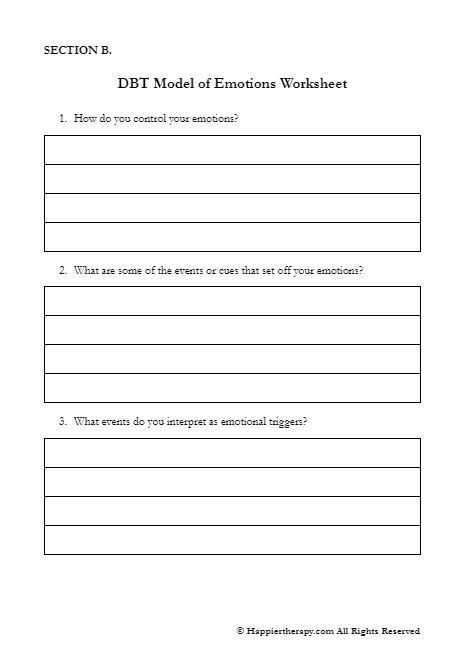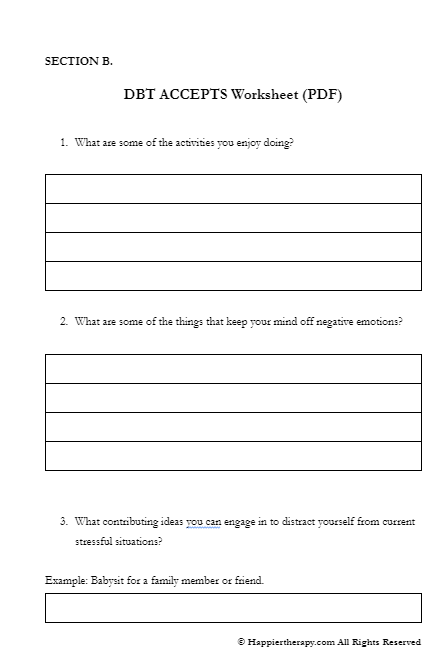Distress Tolerance Skills: ACCEPTS Worksheet
Premium Content
Access this worksheet and 2,500 mental health worksheets. Cancel anytime
Distress Tolerance skills are a set of Dialectical behavioral therapy (DBT) skills that are strategies to help individuals get through difficult emotions and situations and tolerate things that cannot immediately change.
Enhance Your Therapy Sessions with research-backed worksheets
Customizable and fillable worksheets
Rights to alter the worksheets
Over 2000 worksheets
Support HappierTherapy
Distress tolerance skills can create short-term relief from painful situations and minimize the risk of impulsive behaviors.
ACCEPTS is an acronym for Activities, Contributing, Comparisons, Emotions, Push away, Thoughts, and Sensation.
What Are The Theories Behind This Worksheet?
DBT is a structured program of psychotherapy designed to provide skills for managing intense emotions, problem-solving, and acceptance-based strategies.
DBT focuses on providing therapeutic skills in mindfulness, distress tolerance, emotion regulation, interpersonal effectiveness, and The Middle Path.
DBT distress tolerance acronym ACCEPTS is a group of skills intended to help distract individuals and get through challenging situations or difficult emotions beyond their control.
How Will This Worksheet Help You?
This worksheet will help individuals use a variety of strategies to help make challenging situations or difficult emotions more tolerable.
How Should You Use This Worksheet?
Individuals should use this worksheet to cope with uncomfortable or difficult emotions by participating in healthy distracting activities until the feelings lessen in intensity or fade away.
Was this helpful?
References
1.-
DBT Self Help. (No Date). Distract with Wise Mind ACCEPTS. Available at: https://dbtselfhelp.com/dbt-skills-list/distress-tolerance/accepts/. [Accessed February 12, 2023]
2.-
Mind Chicago. (© 2022). DBT Distress Tolerance Skill: ACCEPTS. Available at: https://mindchicago.com/articles/distress-tolerance-skill-acceptsnbsp. [Accessed February 12, 2023]
3.-
Psychology Today. (© 2023). Dialectical Behavior Therapy. Available at: https://www.psychologytoday.com/za/therapy-types/dialectical-behavior-therapy. [Accessed February 12, 2023]
 By
By


